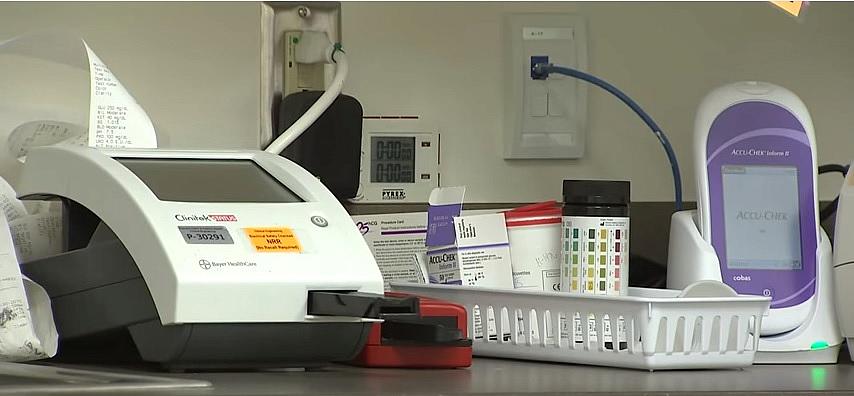'Indelible Impact' — Part III
Karen Falla is a news reporter currently working for Univision, Channel 23 in Dallas, Texas. She covers diverse issues that affect the Hispanic community from immigration to health and education. This project was reported as a project for the 2015 National Health Journalism Fellowship.
Other parts of this series include:

ANCHORS:
The inner struggle of the children who crossed the border is just beginning. What authorities do to help them will determine the future they will have as adults.
And in part three of the story, Karen Falla talks to us about the opportunities and hopes held by these minors.
TITLE: “INDELIBLE IMPACT”
REPORTER:
After fleeing Honduras and experiencing abuse, 16-year-old Samuel feels he is on the right path after going through psychological therapy.
SAMUEL, HONDURAN IMMIGRANT:
“That's what’s helped change my expectations, from before to now. I do see a big change, I can see a future now. Before I would see, perhaps death.”
SAMUEL AS RADIO ANNOUNCER:
Hello, hello. Welcome to your favorite program, Ambassadors of Christ. Thanks for listening…
REPORTER:
He has found his calling as a DJ for a church-based radio station and as a music teacher for kids. He confesses that initially he rejected the idea of getting counseling, because it wasn't going to change his outlook on life.
The same thing happened with Jennifer, who still struggles to keep herself from cutting her skin.
JENNIFER, SALVADORAN IMMIGRANT:
“The therapy sessions with a psychologist opened my eyes to the fact that doing that I was not going to heal my inner wounds, what I carry inside.”
REPORTER:
The Dallas school district, the largest in North Texas, has a staff of 40 psychologists. When necessary, patients are referred to one of the 11 "youth and family" clinics, where psychiatrists are able to prescribe drugs.
CONNIE RODRÍGUEZ, PSYCHOLOGICAL SERVICES, DALLAS INDEPENDENT SCHOOL DISTRICT:
“We work together with the doctor, the clinic’s counselor, the teacher and the school administrators to put in place a plan to support the child.”
REPORTER:
But, depending on the case, the struggle to retain emotional stability can be difficult.
Attorney Andrea Aguilar, from the group Raíces, states that a deportation order never dies.
ANDREA AGUILAR, IMMIGRATION ATTORNEY WITH RAÍCES:
“It affects them for the rest of their lives, it also affects the family, parents or legal guardians. They fear they will leave home one day never to return again.”
REPORTER:
Nevertheless, “children of the border” like Samuel, Jennifer and Juan Carlos have already been granted immigration relief.
ANDREA AGUILAR, IMMIGRATION ATTORNEY WITH RAÍCES:
When they first arrive they feel almost defeated, they have little hope, except to go to school. When they get their legal status there's a sparkle in their eyes because they know one they will be able to drive, get a job and change their lives.
REPORTER:
The most important thing now is that parents, teachers and authorities become aware of the importance of mental health issues in immigrant children.
CONNIE RODRÍGUEZ, PSYCHOLOGICAL SERVICES, DALLAS INDEPENDENT SCHOOL DISTRICT:
“We need much more education so that parents understand that asking for help is ok. Just like when you go to the doctor for asthma or allergies, if the kids have anxiety, they need to have that taken care of and they will have healthier children.”
REPORTER:
Experts in the field and officials agree that parents should become aware that these children need help and psychological therapy to overcome their mental issues.
Other resources available are local hospitals, churches and private mental health providers.
Karen Falla, Univision 23 News.
[This story was originally published by Univision.]
